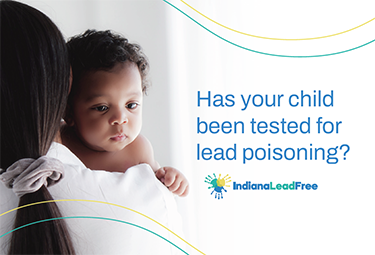Public Health Nursing Services
Our Public Health Nurses are committed to promoting wellness and providing essential services to individuals and families throughout Floyd County.
Services We Provide:
- Family & Community Health Education
- Information on preventive care and healthy living
- Health risk education through talks, written materials, and media outreach
- Assistance & Referrals
- Help connecting patients to medical care and services within the county
- Disease Prevention & Management
- Guidelines on disease prevention
- Communicable disease investigations
- TB screening and case management
- Rabies prophylaxis case management
- Immunizations
- Child and adult vaccines
- On-site visits to senior centers and childcare facilities
- Health Screenings
- Blood pressure and blood sugar checks
- Community Collaboration
- Partnerships with public, private, and welfare agencies to improve community health
- Case Management
- Lead exposure follow-up
- Narcan (naloxone) training and distribution
- STD & Infectious Disease Testing
- Chlamydia, Gonorrhea, HIV, and Hepatitis C testing
📞 For more information, contact us at 812-948-4726 and choose Option 3.
LEAD TESTING IN FLOYD COUNTY UNDER NEW STATE LAW
 The Floyd County Health Department is making local residents aware of the importance of lead testing for children following the enactment of House Enrolled Act 1313, which requires all healthcare providers to offer lead testing to all children at their one- and two-year checkups, or as close as possible to those appointments. Providers also are required to offer testing to any child age 6 or younger who does not have a record of a prior blood lead test.
The Floyd County Health Department is making local residents aware of the importance of lead testing for children following the enactment of House Enrolled Act 1313, which requires all healthcare providers to offer lead testing to all children at their one- and two-year checkups, or as close as possible to those appointments. Providers also are required to offer testing to any child age 6 or younger who does not have a record of a prior blood lead test.
Parents and guardians seeking information about how to find lead testing can contact Floyd County Health Department at (812) 948-4726, call their healthcare provider or visit www.IndianaLeadFree.org for resources.
Lead exposure can damage the brain and nervous system, causing slowed growth and development, learning and behavior problems, issues with hearing and speech, impulsivity, nausea, and other debilitating effects. It is more toxic to the unborn and younger children, though it can negatively impact adults as well. Early intervention, including proper nutrition and removal of sources of lead exposure, can lower lead levels in individuals.
Children who live in homes built before 1980 have a greater chance of experiencing lead poisoning. The chipping and peeling of lead paint being mixed with dust makes these older homes hazardous to children. Of the homes in Floyd County, an estimated 45% were built before 1980. Other common sources of lead are from contaminated soil, drinking water, and, occasionally, children’s toys and jewelry. Children also can be exposed if an adult in the home works in an industry or has a hobby that involves lead or through items like reclaimed barn wood that could contain old paint.
Children with blood lead levels between 3.5 and 4.9 mcg/dL and their families receive education about risks and parents are advised to test siblings. Children with a confirmed level of 5 or above are enrolled in case management, and families of these children are encouraged to allow health department staff to do a home risk assessment, which includes discussing potentially leaded objects and surfaces and identifying educational, nutritional, and developmental support services that may be available to the child. The home assessment will also test surfaces to determine where lead hazards may exist and help the family determine how to best address those.
“There is no safe level of lead, and the sooner we can identify that a child is at risk, the earlier we can take steps to improve the health outcomes for that child,” said State Health Commissioner Kris Box, M.D., FACOG. “By having parents and providers understand the importance of asking for this simple blood test, we have an opportunity to protect hundreds of Indiana children each year from the harmful effects of lead.”

